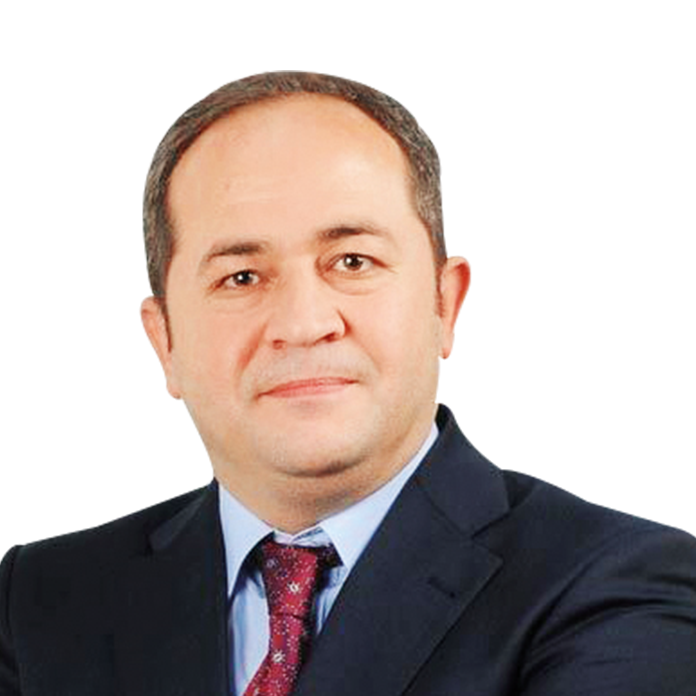Two years have passed since the launch of the resolution process. During these two years, political activity of a type rarely seen in Turkey and the region was, and continues to be, witnessed. Balances of power and alliances shift on a daily basis.
The question that arises is: To what extent was the resolution process affected by all this political activity, and to what extent will it be affected in the future?
Domestic developments with a high likelihood of impacting the resolution process could be listed as the Gezi actions, the operations on Dec. 17 and Dec. 25, 2013 and the two elections held in 2014. External developments could be listed as the PYD’s (Democratic Union Party, considered as the Syrian extension of the Kurdistan Workers’ Party, or PKK) establishing of cantons in Syria as announced, and the expansion of ISIL in Syria and Iraq and its focus on the Kurdish region.
These developments, with their potential to impact the leadership-power equation of political actors engaged in the resolution process and their ideas for the future, could be expected to have an impact on the resolution process.
The Gezi actions and the Dec. 17 and Dec. 25 operations were developments that directly targeted the AK Parti’s (Justice and Development Party) rule, which has carried the resolution process. Both these developments also served the function of confirming that the resolution process was being conducted on the basis of a strategic decision. Kurds not becoming a part of these actions and operations were attributed to the resolution process by the AK Parti, and this increased the value placed on the process.
The PKK and the political movement it has infiltrated – despite opting to buy time by suspending the withdrawal of its armed members – did not become part of these developments targeting the AK Parti and maintained its narrative of being committed to the resolution process.
External developments had a bigger impact on the actors engaged in the process than internal developments. The resolution process that managed to resist domestic provocations was unable to display the same level of resistance to developments in Syria.
While the state adopted a view of distancing the resolution process from developments in Syria to the maximum extent possible, the organization (PKK) and its components opted to place developments in Syria at the core of the resolution process. The organization saw the de facto gains made by the PYD, which had taken advantage of the authority vacuum in Syria, as an opportunity to revise the principal dynamics that the resolution process rested on.
While domestic and external developments served the function of fortifying the state’s determination regarding the resolution process, they served the role of creating doubt in the organization’s mind about the principles of disarmament and of not linking the request for autonomy to the threat of resorting to weapons. These principles constituted the backbone of the resolution process.
The AK Parti, which had recovered its strength during elections held on March 30 and Aug. 10, 2014, implemented consecutive steps to speed up the resolution process which had lost momentum. By placing the resolution process within a legal framework, the government was authorized to create any mechanism it deemed necessary to carry out the resolution process. The Council of Ministers specified the mechanism for the resolution process and it was published in the Official Gazette. The delegation that visits İmralı (the island prison where Abdullah Öcalan is serving a life sentence) was expanded and meetings between the government and the HDP (Democratic Peoples’ Party) intensified.
These steps, while confirming the state’s determination regarding the resolution process, failed to create an effect that would clear up the organization’s doubts. The organization, thinking it would need arms for a longer period since developments in Syria would make this necessary, refrained from taking the steps required by the process.
The PKK suspended the withdrawal process, kept its supporters on constant alert, assumed an aggressive stance of hindering the political activities of other parties, the AK Parti in particular, in places where it had strong societal backing, and gravitated toward disrupting public order through the paramilitary elements it had formed. The events of Oct. 6-8, 2014, and the continuous tension witnessed in Cizre for more than a month, could be evaluated as palpable doubts created for the organization as a result of developments in Syria.
We could conclude that developments during the past two years increased the state’s determination regarding the resolution process, but created doubts for the organization. These differing impacts result from the varying amounts of significance attributed to both the process and to developments by the sides involved.
The fundamental element that makes the process strategic is for the parties not to sacrifice the process to conjectural developments, and their determination to counter any impacts from short-term developments that could affect the basics of the process. The parties could end up neglecting the process’ permanence and strategic dimension if they change position on the basis of freezing a single moment in developments that change daily.
Current indicators strengthen the conviction that the organization is headed in such a direction. It seems like the question that will determine the rhythm and outcome of the process is: Will the organization’s stance be determined by conjectural regional developments which it believes are working in its favor currently, or by a principled and strategic stand capable of extracting itself from the temporary nature of conjectural developments?




















